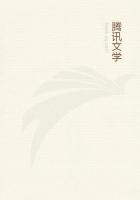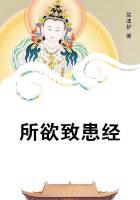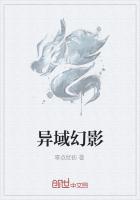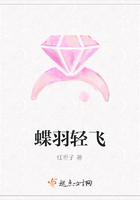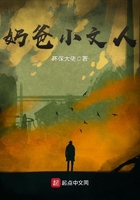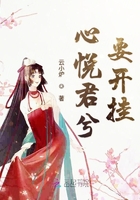One of the greatest orators of his generation, and I might say of ours, was Robert G. Ingersoll. I was privileged to meet Colonel Ingersoll many times, and on several occasions to be a speaker on the same platform. The zenith of his fame was reached by his "plumed-knight" speech, nominating James G. Blaine for president at the national Republican convention in 1876. It was the testimony of all the delegates that if the vote could have been taken immediately at the conclusion of the speech, Mr. Blaine would have been elected.
Colonel Ingersoll carried off the oratorical honors that campaign in a series of speeches, covering the whole country. I say a series of speeches; he really had but one, which was the most effective campaign address I ever heard, but which he delivered over and over again, and every time with phenomenal success, a success the like of which I have never known. He delivered it to an immense audience in New York, and swept them off their feet.
He repeated this triumph the next day at an open-air meeting in Wall Street, and again the next day at a great gathering in New Jersey. The newspapers printed the speech in full every day after its delivery, as if it had been a new and first utterance of the great orator.
I spoke with him several times when he was one of the speakers after an important dinner. It was a rare treat to hear him. The effort apparently was impromptu, and that added to its effect upon his auditors. That it was thoroughly prepared I found by hearing it several times, always unchanged and always producing the same thrilling effect.
He spoke one night at Cooper Institute at a celebration by the colored people of Mr. Lincoln's proclamation emancipating them from slavery. As usual he was master of the occasion and of his audience. He was then delivering a series of addresses attacking the Bible. His mind was full of that subject, and apparently he could not help assailing the faith of the negroes by asking, if there was a God of justice and mercy, why did he leave them so long in slavery or permit them ever to be slaves.
To an emotional audience like the one before him it was a most dangerous attack upon faith. I was so fond of the colonel and such an intense admirer of him, I hated to controvert him, but felt it was necessary to do so. The religious fervor which is so intense with the colored people, made it comparatively easy to restore their faith, if it had been weakened, and to bring them to a recognition of the fact that their blessings had all come from God.
Probably the most brilliant speaker of the period immediateIy preceding the Civil War was Thomas Corwin, of Ohio. We have on the platform in these times no speaker of his type. He had remarkable influence whenever he participated in debate in the House of Representatives. On the stump or hustings he would draw audiences away from Henry Clay or any of the famous speakers of the time. I sometimes wonder if our more experienced and more generally educated audiences of to-day would be swayed by Corwin's methods. He had to the highest degree every element of effective speech. He could put his audience in tears or hilarious laughter, or arouse.cheers. He told more stories and told them better than any one else, and indulged freely in what is called Fourth of July exaggeration. He would relieve a logical presentation which was superb and unanswerable by a rhetorical flight of fancy, or by infectious humor. Near the close of his life he spoke near New York, and his great reputation drew to the meeting the representatives of the metropolitan press. He swept the audience off their feet, but the comment of the journals was very critical and unfavorable, both of the speech and the orator. It was an illustration of what I have often met with: of a speech which was exactly the right thing for the occasion and crowd, but lost its effect in publication. Corwin's humor barred his path to great office, and he saw many ordinary men advance ahead of him.
The most potent factor in the destruction of his enemies and buttressing his own cause was his inimitable wit and humor. In broad statesmanship, solid requirements, and effective eloquence, he stood above the successful mediocrity of his time--the Buchanans and the Polks, the Franklin Pierces and the Winfield Scotts--like a star of the first magnitude above the Milky Way. But in later years he thought the failure to reach the supreme recognition to which he was entitled was due to his humor having created the impression in the minds of his countrymen that he was not a serious person.
Wayne MacVeagh was a very interesting and original speaker. He had a finished and cultured style and a very attractive delivery.
He was past master of sarca** as well as of burning eloquence on patriotic themes. When I was a freshman at Yale he was a senior.
I heard him very often at our debating society, the Linonian, where he gave promise of his future success. His father-in-law was Simon Cameron, secretary of war, and he was one of the party which went with Mr. Lincoln to Gettysburg and heard Lincoln's famous address. He told me that it did not produce much impression at the time, and it was long after before the country woke up to its surpassing excellence, and he did not believe the story still current that Mr. Lincoln wrote it on an envelope while on the train to Gettysburg.
MacVeagh became one of the leaders of the American bar and was at one time attorney-general of the United States. He was successful as a diplomat as minister to Turkey and to Italy.
I heard him on many occasions and spoke with him on many after-dinner platforms. As an after-dinner speaker he was always at his best if some one attacked him, because he had a very quick temper. He got off on me a witticism which had considerable vogue at the time.

